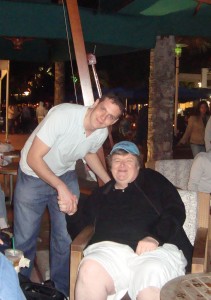The NRA Respondents-Supporting-Petitioners, in McDonald v. Chicago, have filed a Motion for Divided Argument to request time at oral arguments. Petitioner opposed this motion.
In short, the NRA, represented by Paul Clement at King & Spalding, is asking to divide Gura’s time, and to get 10 minutes to argue. The NRA argues that Gura’s brief spent primarily focused on arguing in favor of extending the right to keep and bear arms through the Privileges or Immunities Clause, rather than the Due Process Clause. The NRA argues that the Court needs to hear an argument in favor of the Due Process Clause.
Indeed, because the Due Process Clause represents a route to reversal that does not necessitate the overruling of this Court’s precedents, it would be particularly unfortunate if that argument were not adequately presented at oral argument . . . Because participation of the Respondents-Supporting-Petitioners in the oral argument will ensure that the Due Process Clause alternative is adequately presented, the proposed division of argument will materially assist the Court in its consideration of the case.
The NRA wants to incorporate through the Due Process Clause, and leave Slaughter-House intact. Gura, wants the Court to overrule Slaughter-House, and reinvigorate the Privileges or Immunities Clause. Even though both parties want the Court to strike down Chicago’s gun ban, their preferred approaches are in tension.
While Gura’s brief mainly focuses on Privileges or Immunities Clause, he does address the Due Process argument. It is pretty much open and shut. Recognizing this likely failure, the City of Chicago spends most of its ammo on policy arguments.
To be frank, it really doesn’t take much effort to find for incorporation through the Due Process Clause. Ilya Shapiro just pinged me a note, and remarked that any first-year law student who’s taken constitutional law—let alone a Supreme Court clerk—could write an opinion incorporating the Second Amendment via the Due Process Clause in her sleep.
Further, the Due Process argument was briefed extensively by over 30 Amici. And, I am certain that Gura will be able to handle any questions at oral arguments dealing with Due Process.
For those of you new to the fray, there is a lot of history here. First, if you recall, the NRA tried to spike Heller by joining plaintiffs who would be dismissed. For a full background, see Clark Neily, District of Columbia v. Heller: The Second Amendment Is Back Baby, 2007–2008 CATO SUP. CT. REV. 127, 134 (2008) and Pandora’s Box, pp. 19-23. Second, in all likelihood, Paul Clement will argue the case. As Solicitor General, Paul Clement filed a brief on behalf of the United States in Heller urging the Court to adopt an intermediate level of scrutiny. Both positions were antagonistic to Gura’s efforts to champion the right to keep and bear arms.
This is Supreme Court politics at its greatest. Stay tuned.

